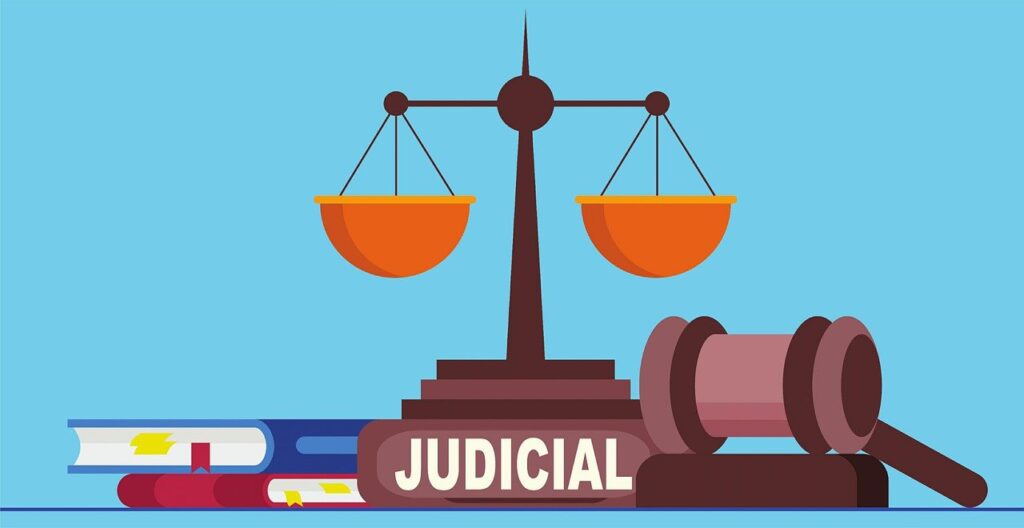
Choosing a career is never easy. It feels like a big responsibility because after all, we all want to be happy and work in something that fulfills us. If you enjoy flexibility, variety, and attention to detail, all with good pay, then you should consider remote court reporting jobs. Moreover, you’ll be held in high regard as an officer of the Court.
The Benefits of Remote Court Reporting Jobs
An average salary for remote court reporter jobs is $60,380 as of 2022 according to the Bureau of Labor Statistics. Although, the highest 10% of remote court reporter jobs paid over $100,000 per year.
Overall, there is a shortage of court reporters because many are at retirement age. Furthermore, this career choice isn’t very visible even though it’s both lucrative and flexible. This is all good news for people who want to join the industry because they’ll be both in demand and in control of their working lives.
In terms of work environment, remote court reporter jobs give huge flexibility. Although, some courts might still need reporters to be present physically. Either way, depending on the job, there are options and some variety. Many people appreciate being able to go into an office just to mix things up a bit and to get out of the house.
In general, here are some of the main advantages of remote court reporter jobs:
- Flexibility
- Multilingual opportunities
- No shortage of jobs
- Variety and learning
Flexibility
Remote court reporter jobs cover a range of flexible options. Clearly, remote work gives people more control over their working hours. Nevertheless, courts and reporting firms have a certain schedule.
Those who want absolute control decide to become independent and choose the clients they work with. Whilst this is attractive to many, it brings other challenges. It isn’t always easy getting a steady income when freelancing.
Multilingual opportunities
Those who speak several languages might want to promote themselves for multinational cases. This obviously makes them unique but it also gives variety and greater exposure.
No shortage of jobs
With the shortage of court reporters, they are generally in demand. It’s always an advantage to join an industry that needs new people. Moreover, the advent of digital technology is making things move fast making it an exciting place to be.
Variety and learning
No two court cases are the same. The intricacies of the legal justice system are fascinating on their own. Then, add high-profile cases or biomedical and genetics and you realize just how much court reporters get to learn. They’re often at the forefront of product development and industry changes which can be exhilarating for the right person.
What Court Reporters Bring to the Courts
Of course, remote court reporter jobs have clear responsibilities. These include creating a complete and accurate transcript of courtroom proceedings as well as witness testimonies and depositions. Essentially, court reporters support the judges and lawyers to produce an official record of everything that went on in the court, whether remotely or physically.
These days, digital technology also plays an important role. In fact, the best court reporters quickly learned to adapt and adopt digital tools. That way, they become faster and more efficient. Nothing can replace a real person certifying an official document though.
It’s important to note that court reporters use specialist equipment such as stenography machines, recording devices, steno mask tools, and many more. Whilst voice-to-text technology and computer-aided transcription (CAT) software are common, a human still needs to interpret what actually happens in court. For example, they might ask witnesses to clarify a statement and report any actions or gestures.
Remote court reporting jobs are important to facilitate court proceedings as per the following responsibilities:
- Effectiveness and digital technology
- Accuracy and accountability
- Logistics support
- Clarity and trust
Effectiveness and digital technology
Two of the most important criteria for remote court reporter jobs are speed and accuracy. In order to be effective, reporters must know how to leverage digital technology to help them.
Whether they choose to work with a voice-to-text device such as a steno mask or simply have a recording device alongside them, they still need to take their own note. The aim is to use digital technology as a backup.
Accuracy and accountability
With effectiveness, comes the need for accountability. It’s imperative that all transcripts are precise otherwise it could put the case at risk. This is another reason why digital technology can never take over.
Not only does digital technology make mistakes but it also can’t stand up and be held responsible for its outputs. Moreover, technology can’t always differentiate between accents and can sometimes confuse background noise for people speaking.
Logistics support
Another important aspect of remote court reporter jobs is all the background logistics. Court reporters make sure that they have all the witness details before a case, for example.
Court reporters will also test the technology beforehand and make sure everyone knows how to connect remotely. This saves precious time for the courts.
Clarity and trust
Court reporters aren’t just there to record the proceedings. They can also read back any statements as needed by the lawyers. In addition, they talk to the witnesses to coach them to speak clearly.
Of course, they’ll also ask people to repeat statements when required. Overall, they are trusted as part of the process and to make sure things run smoothly.
How to Become a Court Reporter
In the US, remote court reporter jobs require a two to four-year associate’s or bachelor’s degree program. Although, you’ll soon learn that all court reporters are stenographers but you can become a stenographer without certifying as a court reporter.
The main difference is that stenographers simply transcribe but court reporters partner with the judges and attorneys. They essentially organize and research any information that they might require.
Whereas stenographers train for 6 months, court reporters study for two to four years and complete a program approved by the National Court Reporter’s Association (NCRA). This means that court reporters are highly skilled individuals. They can also carve out their own niche. So, for example, they can specialize in intellectual property or medical focus so giving them an edge.
Either way, remote court reporter jobs require the following:
- Apply to a court reporting program
- Complete the requirements
- Get licensed with the National Court Reporter’s Association
How to Manage your Remote Court Reporting Career
Remote court reporting jobs are an important part of court proceedings. So, as an officer of the courts, reporters must be professional. They also need to abide by confidentiality rules. Then, they can easily apply for jobs through online portals or directly with courts and reporting firms.
How anyone manages their career is a very personal choice. Some people prefer the stability of working for a company. Others though prefer independence. It’s also worth noting that an experienced freelance reporter has options outside the courtroom.
In fact, many freelancers build a portfolio with a variety of clients. These include broadcasters, conference providers, and many more that might need real-time reporting.
- Time management
- Continuous learning
- Digital tools
Time management
Court reporting is a big responsibility and that means it can be stressful especially when there are tight deadlines. It’s therefore important to have regular time off and very good planning and time management skills.
Continuous learning
All professions require some form of continuous professional development. Otherwise, you’ll quickly start missing out on the best-paid jobs. The National Court Reporter’s Association offers various courses and conferences, for example. On top of that, many states have their own associations that also offer many ways to continue learning.
Digital Tools
It’s important for all court reporters to be comfortable with the various tools and software available. Clients expect the best and they assume the tools will make transcripts faster.
Naturally, court reporters have their favorite tools that they like to work with. Nevertheless, they need to collaborate with the courts and their clients to make sure they fully meet or exceed all expectations and needs.

Gavel and book.
What’s Next For You and Remote Court Reporter Jobs?
If you want variety, flexibility, and a well-paid job then look no further than remote court reporter jobs. Although you need to make sure you enjoy the attention to detail and that you have good time management skills.
Court reporters all hold a college degree and are licensed by the National Court Reporter’s Association. They also focus on their ongoing development through various courses and conferences including how to leverage digital technology.
This puts court reporters as vital officers of the courts to support a smooth process. They’re constantly learning and held in high esteem as valuable team members. Remote court reporting jobs are in high demand and hugely fulfilling for the right person.







